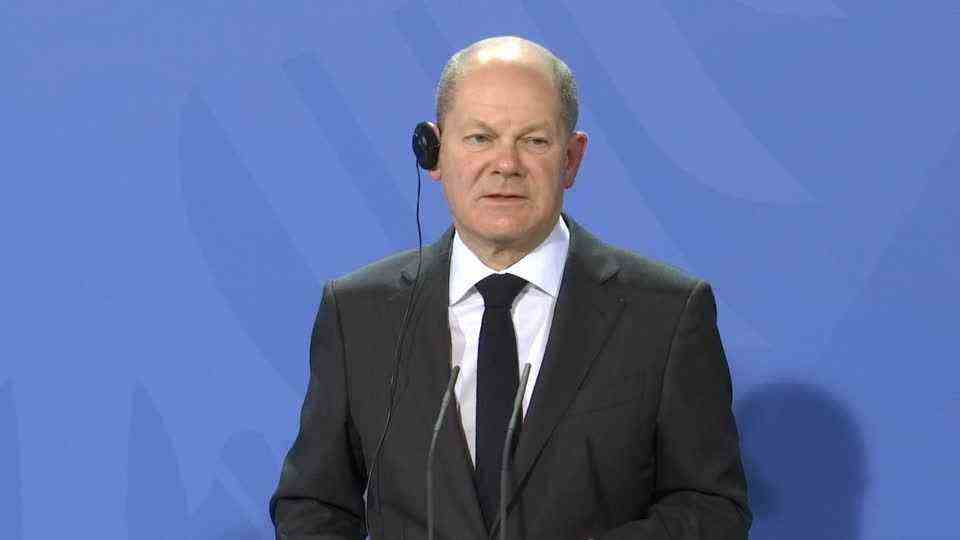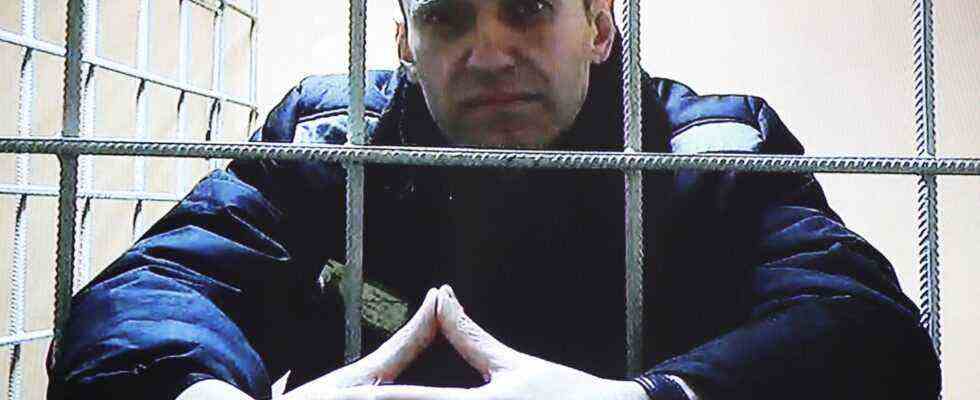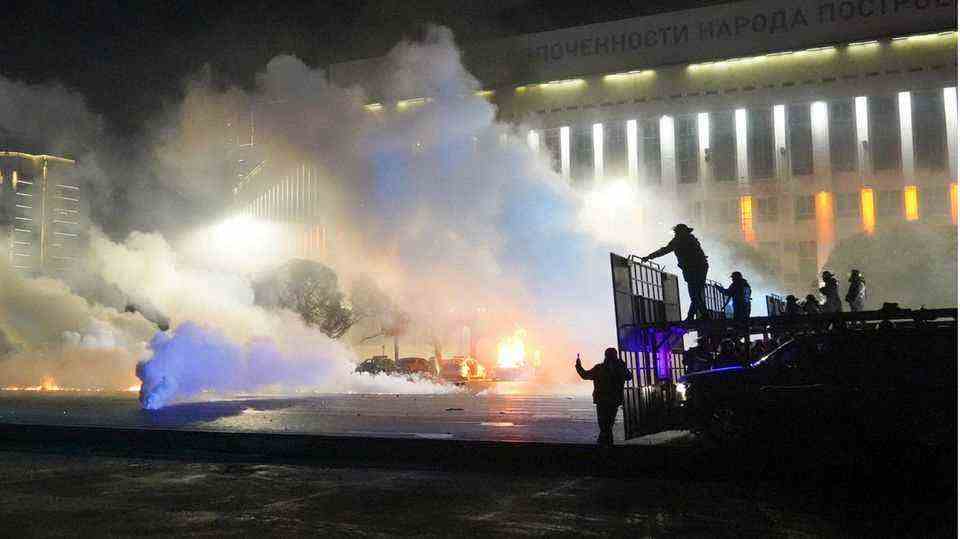Russia
The fight continues: Putin critic Navalny has been behind bars for a year
Alexej Navalny, opposition politician from Russia, is connected via video from a prison during a court hearing. The Putin critic also wants to continue fighting the “corrupt regime” in his country.
© Evgeny Feldman/Meduza/AP/DPA
Kremlin critic Alexej Navalny returned to Russia from Germany a year ago – and promptly ended up in prison. In the prison camp he continued to fight against the “corrupt regime”.
A year after his arrest at a Moscow airport, which was sharply condemned by the West, Alexej Navalny is unbroken and combative. The opponent of Russian President Vladimir Putin communicates with the outside world from the prison camp on Instagram – via messages that he gives to lawyers and visitors. The 45-year-old explains to a picture with his wife Julia on Monday that it is important for him to be honest with himself: “I don’t regret it for a second and keep going.”
From the prison camp, Navalny had to watch as the authorities smashed his anti-corruption organization, which he had built up over the years, in an unprecedented wave of repression. Navalny’s websites are blocked in Russia. The Kremlin branded his former allies as “extremists” and “terrorists”.
Poison attack on Navalny
Putin, too, recently claimed again that these forces are attempting to disintegrate Russia from within. Navalny’s spokeswoman Kira Jarmysch countered on Twitter that Putin himself was destroying the country – through his “corrupt regime” and abuse of power. She also described the Kremlin boss as a “coward” and “murderer”.
Putin also used his appearance at the annual press conference in December to once again sweep away allegations that he had his fiercest opponent poisoned in August 2020. The West has not yet submitted any evidence of the “alleged poisoning” with the chemical warfare agent Novichok. “Nothing. Zero,” said Putin, who never called Navalny by name. According to official information, however, several laboratories, including one from the German Armed Forces, had detected the nerve agent.
Unlike Navalny, numerous opponents of Putin did not survive attacks. The opposition leader accuses a command of the domestic secret service FSB, acting under Putin’s orders, of having administered the poison to him in Siberia. Navalny collapsed on the plane at the time. The pilot brought the machine to the ground in Omsk. There, the opposition was treated by rescue workers and in a clinic before a special machine from Germany picked him up. She brought him to Berlin for rescue treatment at the Charité.
Navalny should be a topic at meetings between Baerbock and Lavrov
Navalny made the names of the suspected FSB assassins public and researched the crime himself with the help of investigative journalists. But the Russian judiciary has so far refused to initiate preliminary proceedings in the case. Even Western sanctions do not impress Russia. The federal government under the then Chancellor Angela Merkel (CDU), who also visited Navalny in the Charité, always emphasized that she saw Russia as responsible for solving the assassination attempt.
The Navalny case should also be an issue for the new Federal Foreign Minister Annalena Baerbock (Greens) this Tuesday at her first personal meeting with her Russian colleague Sergey Lavrov in Moscow. It should also be about the international demands for the release of the political prisoner.
The pictures of Navalny’s arrest at a Moscow airport a year ago, on January 17, went around the world. The plane was about to land when Russian authorities, in the face of thousands of supporters of Putin’s opponent, had it diverted to another capital airport so as not to give Navalny a stage. The fact that the politician was then imprisoned for several years because he is said to have failed to comply with reporting requirements in another criminal case has been condemned internationally as politically motivated judicial arbitrariness.

Navalny criticizes the “duplicity” of Russian politicians
Navalny now said that, given the threat of further proceedings, it was unclear when he would be released. During his first year in prison, he received several awards, including the European Parliament’s Human Rights Prize, named after Russian Nobel Peace Prize winner Andrei Sakharov.
From prison in Pokrov, around 100 kilometers east of Moscow, Navalny points out torture and other abuses in the penal camp system. The father of the family also describes his work as a prisoner in a sewing workshop. And he slanders about state television, for example, which apparently only shows Moscow’s demands that NATO should stop expanding eastwards because Russia sees its security threatened. The propagandists of the Kremlin in particular would make a good living for themselves in the NATO member states.
Navalny criticizes the “duplicity” of Russian politicians and opinion leaders who preach patriotism at home. In truth, they are corrupt and enrich themselves. They used bank accounts and bought property in the West, educated their children there, and generally enjoyed liberal societies to the fullest while increasingly restricting freedoms at home. For a long time, the opposition figure and his fellow campaigners, who are now active abroad, have been demanding that the West impose sanctions on these Russians – including on the oligarchs who support the “Putin system.”
The prisoner just thanked the US broadcaster CNN for wanting to broadcast the documentary thriller “Navalny” by filmmaker Daniel Roher soon. Navalny’s confidant Leonid Volkov said: “And Putin will then regret very much that a year and a half ago he gave the order to poison Navalny and a year ago to arrest him.” An audience of millions will see the strip. However, there is no broadcast date yet.


